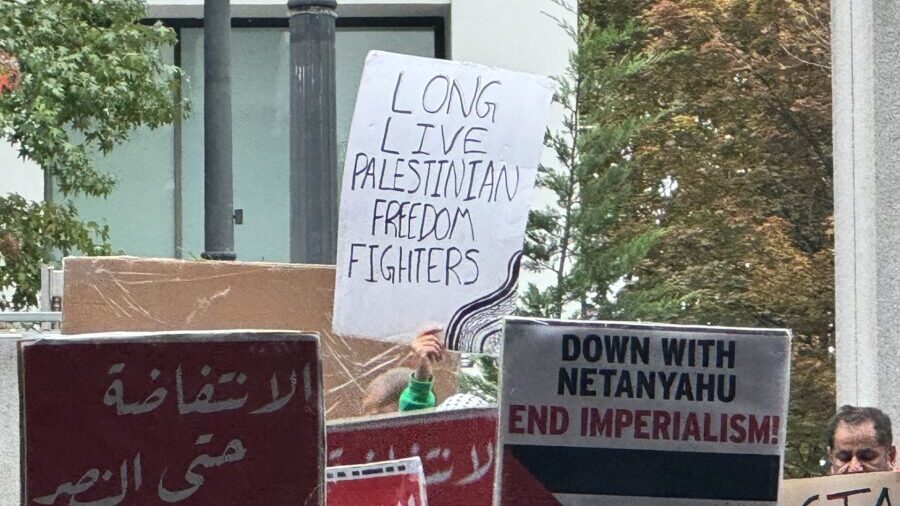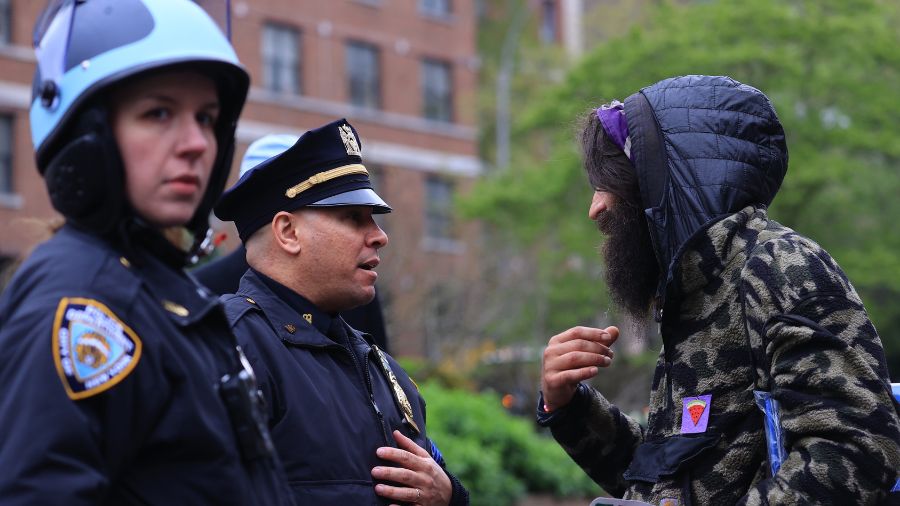Rantz: WSU amplifies claim that farmers markets, food charity are ‘white supremacy’ in action
Dec 1, 2021, 5:55 PM | Updated: Dec 2, 2021, 11:45 am

(Washington State University)
(Washington State University)
Washington State University is amplifying claims that farmers markets and food charities are examples of “white supremacy” and “white dominant culture.” It has nothing to do with helping farmers thrive. This is about creating left-wing social justice activists.
The agriculture program coordinator for WSU’s San Juan County Extension Ag Program promoted a webinar event titled: “Examining Whiteness in Food Systems.” During the hour-long presentation, attendees learned that “white supremacy culture” creates food insecurity by “center[ing] whiteness across the food system.”
The materials claim that “whiteness defines foods as either good or bad” and that farmers markets are merely white spaces.
This webinar is the latest example of a critical race theory lens framing noncontroversial issues as racist. And given WSU operates a 4-H program, it’s worth wondering how much of this will eventually get in front of young kids.
‘White supremacy’ culture in agriculture
The webinar was originally produced by Duke University and featured two speakers from WSU’s 2021 San Juan Islands Ag Summit on the same topic.
Jennifer Zuckerman of the Duke World Food Policy Center led the discussion. She framed the webinar around her identity as a white woman who has “benefited from whiteness for my entire life at the expense of other people.” With that in mind, she explored the “really specific ways in which whiteness shows up in the food system and particularly in the work of food insecurity.”
Promoting the belief that “whiteness permeates the food system” and that “it specifically articulates these white ideals of health and nutrition,” Zuckerman chided the “whitened dreams of farming and gardening.”
She took particular aim at farmers markets as being too white. She uses a quote from Rachel Slocum (“a preeminent researcher on whiteness and food”) as a jumping-off point.
“What that does is it erases the past and present of race and agriculture. What whiteness also does is ‘mobilizes funding to predominantly white organizations who then direct programming at nonwhite beneficiaries,'” she said. “And we’ll talk about that a little bit more when we talk about communities that can’t take care of themselves. Also, what this does is it creates inviting spaces for white people. Then program directors or farmers market directors are scrambling because they’re trying to add diversity to a white space. So what whiteness does is center whiteness.”
Food charity is white supremacy, too
Zuckerman is particularly offended by white groups bringing mobile food banks to communities of color.
Efforts to offer food free of charge presumes “that low income and or BIPOC communities and individuals (and that’s not necessarily one in the same) cannot provide or make decisions for themselves.” She says it comes out of the “white supremacy culture” of individualism and neo-liberalism.
“What this does is it pathologizes people and makes the assumption that they need to be helped,” Zuckerman notes. “And these assumptions are based on negative racial and class stereotypes. They dictate who’s given power and decision-making in food policy and programming. And then what happens, as a result, is that organizations prescribe solutions to the community without consulting them, assuming that they know better. And there’s so much in our systems that reinforce this narrative that communities can’t take care of themselves.”
Luckily, these communities have a privileged white lady to tell them they don’t need any help. She says the focus should not be about handing out food to help the hungry. Instead, the priority should be on “providing economic assistance, increasing wages, or providing direct capital for BIPOC owned food and agriculture businesses.”
Ironically, white savior Zuckerman says food charity promotes “a savior mentality over mutual aid.”
Zuckerman said she needed “to step back to de-center myself” as a privileged white person so that in-need people of color can speak. Yet she only gave the two women of color on the panel roughly 21 minutes between them.
This isn’t an anomaly
The CRT-framing around food systems wasn’t a one-off. It appears to be the very basis of the work this WSU extension course offers.
At the race-obsessed 2021 San Juan Islands Ag Summit in May, the focus was also centered on whiteness. Alison Conrad of Duke Sanford World Food Policy Center was the keynote speaker. She addressed the “white-dominant narratives in food movements and food policy.” The speech focused on the same talking points — almost word for word — presented by Zuckerman.
It offered a series titled “Black Agrarianism: Past, Present, and Future,” and also focused on “Indigenous land management, animal husbandry, crop cultivation, past and present.”
WSU’s extension program also operates a 4-H program where kids can start learning the basics around global food security, climate change, and sustainable energy. But if the adult-geared program is intent on pushing left-wing views on race, what are the kids learning?
What is the point of this toxic garbage?
There are certainly valid concerns around food insecurity that can and should be addressed. But that’s not really the point of these types of seminars.
Activists like Zuckerman are more interested in strutting their left-wing, woke bona fides than creating real change. She’s quite proud of telling us about her white privilege but does little to get rid of it. This white woman seemed awfully interested in talking rather than letting women of color present their ideas and experiences. Yet Zuckerman tells us how she’s there to de-center her own whiteness — which doesn’t actually mean anything.
Too many left-wing, faux academics are more interested in rhetorical self-love. They try to one-up each other with meaningless terms and theories meant to telegraph their own wokeness. It’s precisely why these issues around food security are not improving.
If the focus is to help minority communities gain better access to food, one could do that without labeling everything white supremacy culture. But when your goal is to attack white people, instead of helping minority communities, you get ridiculous seminars like this. And the audience are people who already agree with the nonsense being spouted. It’s not bringing anyone to the table to help solve actual problems.
Did you like this opinion piece? Then listen to the Jason Rantz Show weekday afternoons from 3–6 pm on KTTH 770 AM (HD Radio 97.3 FM HD-Channel 3). Subscribe to the podcast here. Follow @JasonRantz on Twitter, Instagram, and Parler, and like me on Facebook.














